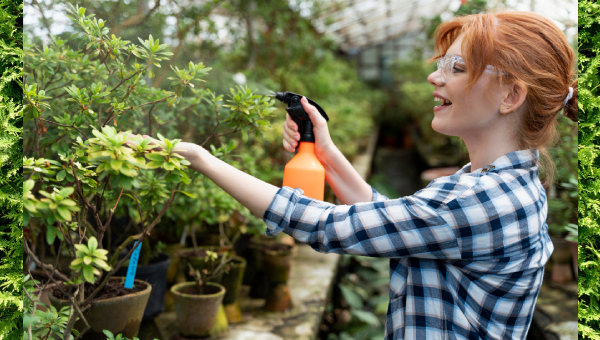Red, White, and Boom: Creative Ways to Celebrate Independence Day
Mastering Gardening Basics: 10 Mistakes to Watch Out For and Avoid

Gardening is an excellent way to gain new hobbies and pleasures that can improve your life even to the extent of supplementing your diet. But like every other thing it has its disadvantages and that is most evident with beginners. Some of the issues that can go wrong in a garden and how to avoid them are some of the topics that will be of great importance in this article. Listed below are ten frequent mistakes along with advice for averting them.
Choosing the Wrong Location
Perhaps, one of the severest mistakes that beginning gardeners commit is choosing the wrong location to plant. Some plants require direct sunlight while others need shade and putting them wrongly will greatly affect the growth of the plant or the whole project may fail.
- How to Avoid It: Notice how much sunlight each area of your garden receives to determine if it is full sun, half sun, half shade, or fully shaded. This means that to the extent possible, you have selected the correct plants for the light conditions available in your space. For example, tomatoes and pepper plants need full sunlight, while ferns and hostas do well in a shaded environment.
Overwatering or Underwatering
Irrigation is perhaps one of the most vital and difficult categories for any gardener, especially first-timers. Too much water will cause the roots to drown the plant, while too little water will put unnecessary pressure on the plant and slow growth.
- How to Avoid It: Find out what amount of water is required by your specific plants. You can check this by taking your finger and feeling the soil up to one inch deep. When it feels dry you have to water the plant. Water deeply and infrequently while using mulch to promote root growth in the plants.
Ignoring Soil Quality
Amongst the many usual errors that new homeowners commit is that they fail to give importance to the soil. Substandard soil that is normally depleted of all nutrients inhibits the growth and development of plants hence low productivity.
- How to Avoid It: Your local extension office should provide guidance on testing the pH and nutrients of the soil or go grab a basic home testing kit. Amend your soil with compost, manure or peat moss to increase organic matter in your soil and therefore change the physical characteristics of the soil.
Planting At the Wrong Time
In gardening, timing is imperative because the results depend on when some actions are carried out. Forcing seed or seedling planting at certain periods puts it at the mercy of harsh environmental conditions that may harm plant growth or take the plant’s life.
- How to Avoid It: Inform yourself about your geographical area’s growing zone and frost dates. Plant them according to the instructions on the seed packet or using local gardening guidelines for appropriate planting in your area. If you want to plant early use row covers or cold frames to protect young plants but remember not to use plastic covers.
Overcrowding Plants
An error that most people make is placing seeds or seedlings too close to each other. Plants overcrowded disrupt each other access to light, water, and nutrients limiting their growth and the possibility of diseases.
- How to Avoid It: Look at the recommended space on the pack of seeds or the label of the plant and follow the instructions. After germination thinning can also help in the spacing and growth of healthy plants in that area.
Neglecting Pests and Diseases
Having pests and plant diseases in a garden can result in the plants being overtaken if checked early enough. The main problem of novices is that they do not notice the presence of an invasion or a disease at an early stage.
- How to Avoid It: Check your plants daily and weekly for pest infestation for holes in the leaves, changes in the vegetation colour or wilting. Get acquainted with pests and diseases that affect your region. Other Organic treatments include applying neem oil or insecticidal soap or introducing good insects such as ladybugs to manage any issue at an early stage.
Using the Wrong Tools
Doing gardening without the proper tools will only make the task harder and not as much fun. For instance, a blunt pair of pruners can harm the plants and forgiveness digging tools can cause pain in the hands and back.
- How to Avoid It: Accumulate quality tools that will suit your exercises in gardening to the best extent. You might start with basic tools such as a good trowel, pruners, gloves, and a watering can. Please keep your tools clean and sharp all the time in case of any mishit.
Not Rotating Crops
That is why, if one practices vegetable farming, continuous planting of similar crops on the same field may exhaust the soil nutrients and may attract many pests and diseases.
- How to Avoid It: If planting particular crops as a means of converting sunlight to food, then switch the location of the crops every year. Organize the plan by the family, for instance, tomatoes and peppers are in the nightshade family and change their positions in the beds to interrupt the cycle of pests and improve the state of the soil.
Failure to take Consideration of Mulch
One of the most ignored by beginners is mulch, it comes with benefits such as water conservation, weed suppression, and management of soil temperature.
- How to Avoid It: Organic mulch such as shredded bark, straw or fresh grass clipping should be used around the plants and should cover the soil partially to a depth of 2-3 inches. Avoid putting mulch too close to the stems because this will lead to rotting and pest infestation.
Placing Expectations to Pass Spite of Effort
Inexperienced gardeners may be naive over the time and effort that they are going to take in gardening. Prolonged plant failure can be frustrating when plants do not grow as fast as expected.
- How to Avoid It: First begin with one or two plants or a small garden and then gradually as you are getting experience. Have a step and celebrate event where one can acknowledge the fact that gardening is all about experimenting and learning fruitfully.
Additional Tips for Beginners
Gardening too doesn’t have to be another thing that one complains about frequently. Begin with a simple project – a small backyard garden with a little plot or some plants that are growing in containers. To provide the best results, you should try to grow tough plants or plants that grow easily such as marigolds basil, or radishes. Spend at least five minutes or more a day observing your garden for this purpose. It allows you to identify problems on time and strengthens the bond with your garden. In the long run, you will be happy with small transformations and growth in the physical self.
Sources of Additional Information
In this case, I can assure you that there are a host of books that can guide you on how to become a better gardener. Some of the few books to choose from are “The Vegetable Gardener’s Bible” and “Raised Bed Gardening for Dummies”. Other examples include online tutorials blogs, and articles providing visual instruction through sources such as YouTube and participating in a local gardening club, or participating in a community garden grants very viable, real-life, learning experiences and mentorship contacts from other gardening enthusiasts from your neighborhood.
Conclusion
In gardening, one creates out of the heart and mind, and the result is that it is a process of learning. One may have to work very hard to avoid these mistakes but when you finally do, you are rewarded with your backyard garden. Its okay to make a mistake – even professional gardeners make them as well, so don’t stress it too much. Over days, weeks, months or even years, gardening becomes a part and parcel of your routine and you get close to it and learn the art of caregiving.








